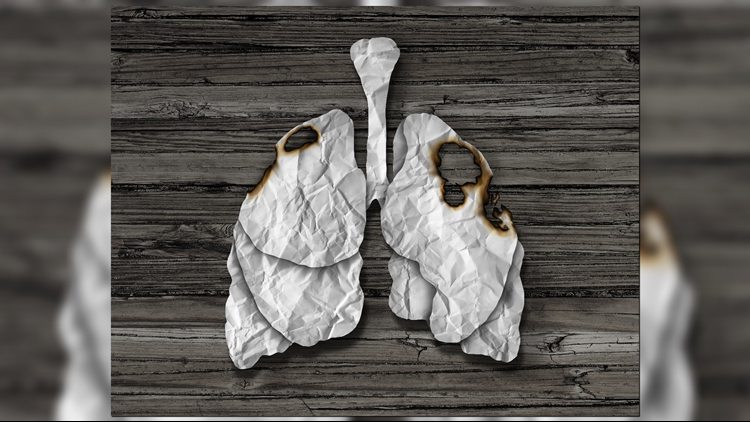SEATTLE — Danielle DeLaRiva had not smoked a day in her life, so when she was diagnosed with lung cancer at the age of 43, she was shocked.
"It was tough," DeLaRiva said, "It was tough."
Seven years ago, she was experiencing a lot of wheezing in her chest, but didn't think much of it.
"I just thought it was normal bronchitis, and went to my general doctor. She took an X-ray and said, 'I don't know, this doesn't look good.'"
DeLaRiva went to Virginia Mason, and through extensive testing, her doctors determined she had lung cancer. She hadn't been a smoker, but her parents did smoke when she was young. "I grew up in California with the smog but I never smoked."
Dr. Joseph Rosales of Virginia Mason does not know why lung cancer is on the rise among younger, non-smoking women, but it is.
"We always consider lung cancer to be associated with people who who have a high tendency to smoke and that's still true," explained Dr. Rosales, "But what we don't realize, actually, is that when you look at the top 10 cancers in the country, the number seven cancer in the United States is in people who have never smoked. We don't think it's necessarily hereditary, but there are some other things in the environment that are probably causing it, activating cells already in the body that turn normal cells into lung cancer."
Dr. Rosales is now DeLaRiva's doctor. She's survived with lung cancer for seven years, thanks to her doctors and cutting-edge treatments at Virginia Mason.
"[DeLaRiva] was one of the first patients to undergo a robotic surgery," Rosales said. "You can recover much faster and then it's part of your treatment... [She] initially had several different rounds of chemo and now [she's] on oral therapy which has done really well over these last five years."
After seven years of treatment, a doctor listening to DeLaRiva's lungs would not even be able to tell that she has lung cancer.
DeLaRiva credits Virginia Mason for her good prognosis. "I mean Virginia Mason is amazing. I have never had a bad experience for the seven years that I've been there," she said. "Their polite bedside manner and caring from the minute I walk in the door, from the check in desk to the surgeons to doctors... I mean [Dr. Rosales] and I banter back and forth all the time."
Dr. Rosales added that over the last 10 years, specifically in lung cancer, there have been a lot advancements in treatment and detection.
"One of the things that we are doing now, as opposed to seven or eight years ago, is identifying the kind of lung cancer," said Rosales, "Because of the ability to find genetic testing and other molecular markers, if we're able to sub categorize, we are able to tailor the treatment more specifically."
DeLaRiva was one of the first people for whom doctors used genetic testing and molecular markers. It was being studied but it had only just become popular in regular use, according to Dr. Rosales.
If DeLaRiva could share any advice for others, it would be for people to listen to their bodies.
"The only reason why I went to my doctor is -- I started coughing," DeLaRiva said, "[If I were just] wheezing, I probably wouldn't have gone to my doctor ... so my number one thing I tell everybody ... is listen to your body. Your body's trying to tell you something and if it's doing something different."
This segment is brought to you by Virginia Mason. Watch KING 5's New Day Northwest 11:00 weekdays and streaming live on KING5.com. Connect with New Day via Facebook, Twitter, Instagram.



